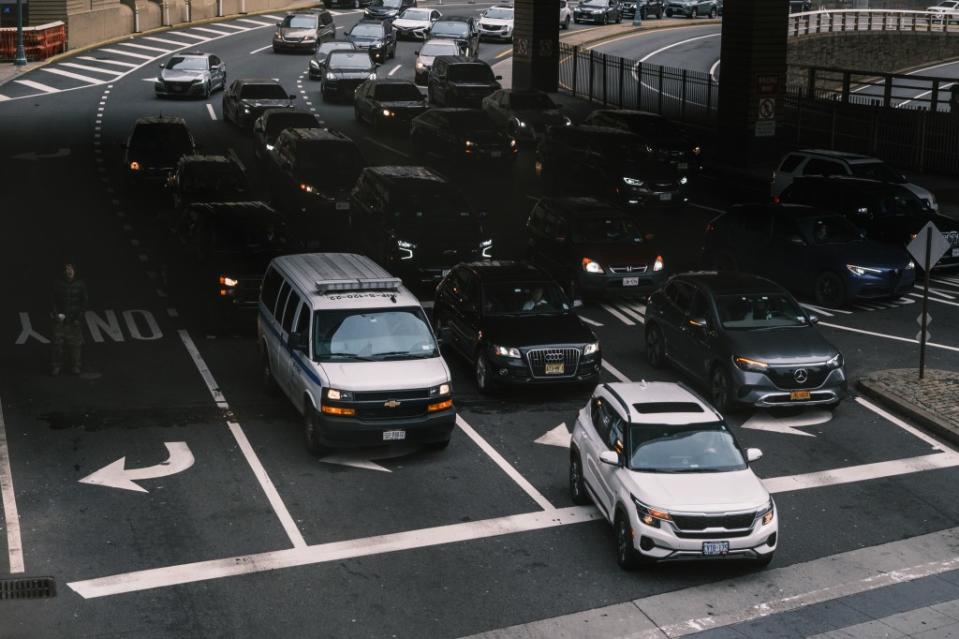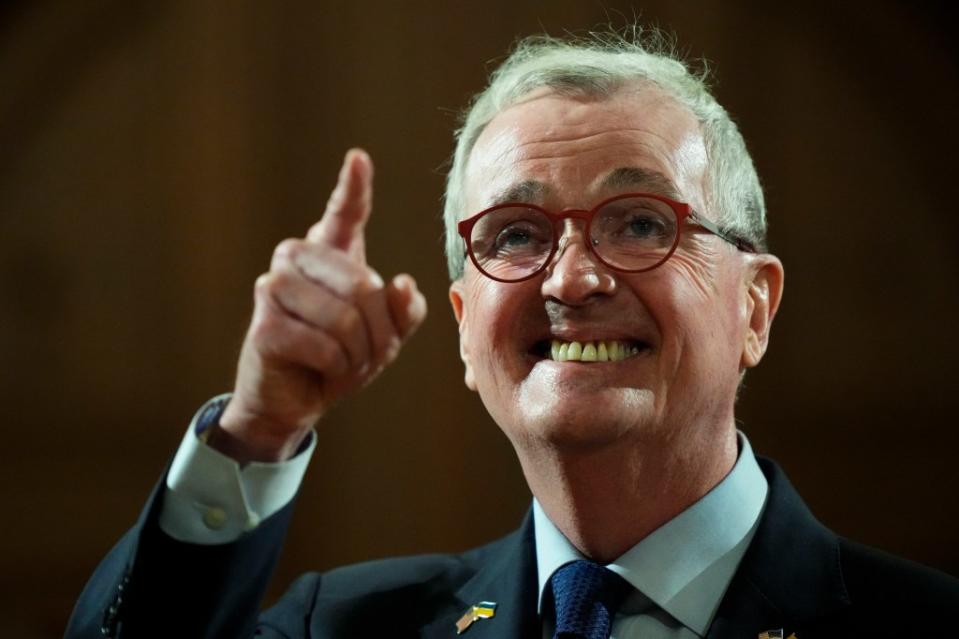Feds fast-tracked ‘mind boggling’ review of NY’s controversial $15 congestion pricing toll: NJ lawyers

The feds fast-tracked a “mind boggling” review of New York’s controversial congestion pricing plan without fully weighing how traffic and pollution would be shifted across the Hudson River, a lawyer for New Jersey argued in federal court Wednesday.
Garden State residents will be forced to shoulder the environmental and financial costs of the looming $15 toll — without any additional mitigation or funding in place, the lawyer, Randy Mastro, said as New Jersey’s federal lawsuit against congestion pricing got underway.
In what is widely seen as the most serious challenge to block the Empire State’s new toll, Jersey lawyers started duking it out with attorneys for the US Department of Transportation, the Federal Highway Administration and the Metropolitan Transportation Authority over whether a sufficient review was conducted to assess the full impact on Garden State drivers and residents.
“It is mind boggling,” Mastro told the Newark court of the MTA’s finding that there would be “no significant impact” on those across the Hudson if the congestion tolling plan went through.
The hearing, which is set to last through Thursday, focuses on the FHWA’s alleged rubber-stamping of the MTA’s environmental review, with Mastro claiming it was been “predetermined” that the feds would sign off on it.
New Jersey is pushing for Judge Leo Gordon to rule that a more comprehensive review is needed, which would ultimately delay the start of the tolling program slated to begin in June.

The case, Mastro argued, isn’t about whether the MTA “stands to make a boatload of money” when it starts charging drivers $15 to enter Midtown Manhattan below 60th Street in the coming months.
Instead, it centers on if the MTA “took a hard look into the adverse environmental impact” and if they considered the “entire region” — not just New York — before giving the sign off, Mastro added.
He argued a new review was warranted because the environmental impact studies only weighed the effects on two Jersey counties — Bergen and Hudson.
Mastro added that the MTA had found New Jersey could potentially require mitigation as a result of the toll — but stopped short of allocating the state any of the $115 million it had set side for such purposes.
“They didn’t consider New Jersey adequately. They didn’t give a dime of mitigation money to New Jersey,” the attorney argued.
The Garden State was left relying on “a wish and a prayer that it’ll come later,” Mastro said.

Judge Gordon repeatedly pressed MTA and FHWA lawyers on why no mitigation dollars had been set aside for Jersey — given The Bronx, for instance, was allocated $35 million to offset the potential environmental impacts from the toll.
“There has been a mitigation commitment and in a dollar amount to The Bronx. Isn’t that differentiated treatment, potentially rising to the level of arbitrariness?” Gordon asked.
MTA lawyer Elizabeth Knauer insisted that the New York borough had much higher levels of pollutants and disease than Jersey communities, adding: “I don’t think it’s differentiated treatment.”
FHWA attorney Gregory Cumming, meanwhile, said he’d come back with a better answer, prompting the judge hit back: “The answer is you don’t really have an answer.”
An attorney for the MTA accused Jersey of simply wanting to delay the program’s rollout.
“Plaintiffs don’t want that reevaluation to occur. They want everything to start all over again,” lawyer Mark Chertok said.
Meanwhile, Cumming, the FHWA’s lawyer, stressed that “the agency exhaustively examined” all the factors before approving the findings.
“The environmental assessment examined eight different scenarios with a commitment to reevaluate,” he said.
FHWA lawyers insist they will be conducting a supplemental review of the finalized MTA plan.
But Mastro argued that two months from now until mid-June, when the toll is set to start, wasn’t long enough to “do a bona fide hard look” on the full effects.
“They can’t possibly greenlight the project in two months. They need to start from scratch,” Mastro argued.
It wasn’t immediately clear when the judge was expected to hand down a ruling.
The lawsuit brought by Gov. Phil Murphy is among a handful of other litigation in both New Jersey and New York courts that seeks to block congestion pricing.
The hearing comes a week after the MTA’s board voted to approve the plan to charge drivers $15 to enter some of Manhattan’s busiest streets in a bid to reduce pollution, curb peak-day congestion and generate billions to improve the public transit system.

